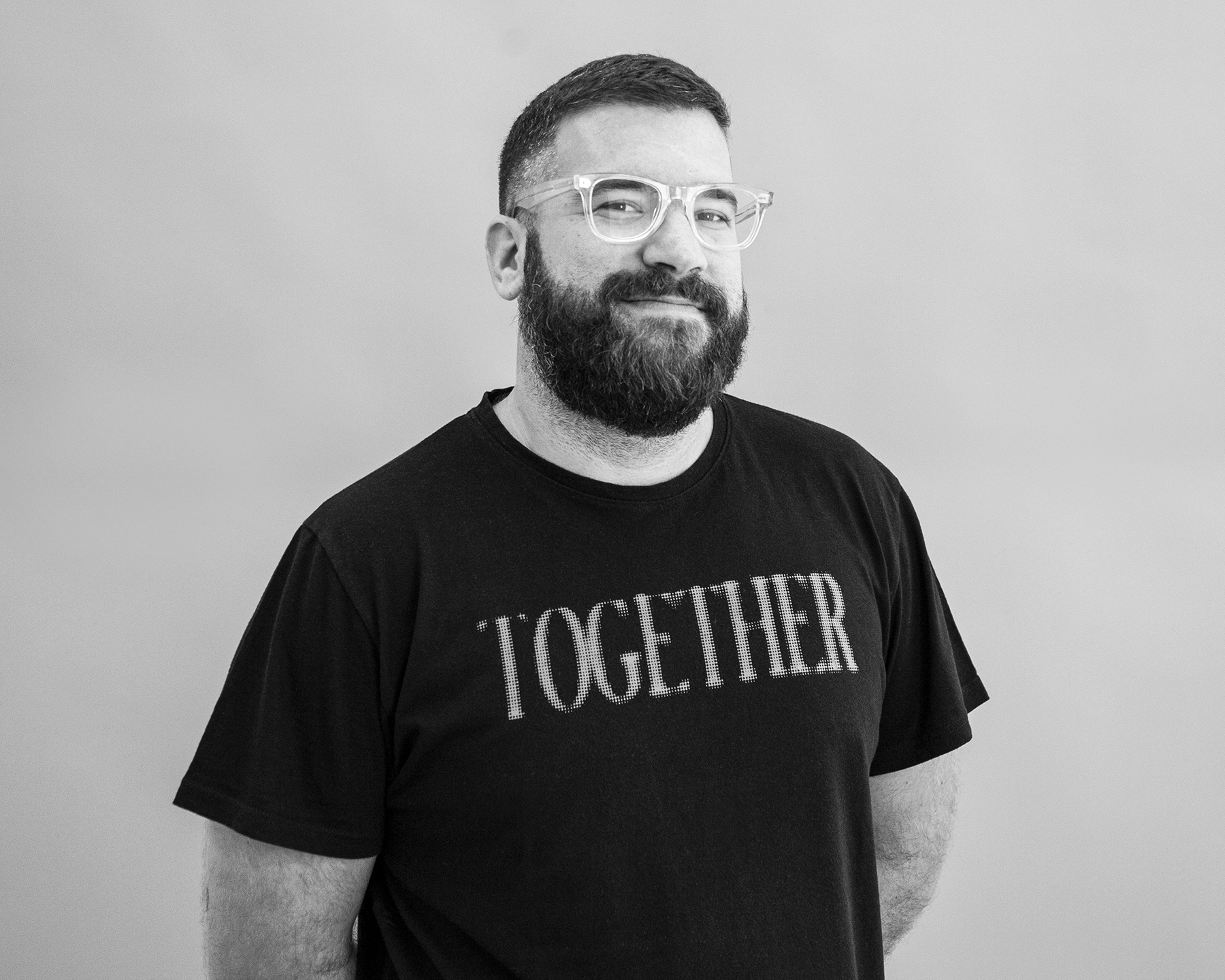Sotiris Trechas, aka The Dreamer, is a thriving Greek artist and co-owner of Neon Raum, a concept store in the heart of Athens. Our friendship with Sotiris dates back to 2005, when I first met this multitalented personality that never ceases to dream, create and accomplish.
The Dreamer has always had one big passion: dreaming big and creating. Be it posters, paintings, clothes, socks, notebooks, magazines or music, Sotiris has managed what only a few can do successfully: to turn his passion into a profession through relentless hard work, consistency, love and respect for the art and his clients.
I asked Sotiris to share with us how it feels to be his own boss by continuously cultivating, practising and evolving his passion, his profession.
“Follow your heart, and you will never have to work a day in your life”—your comment on this advice.
I am one of those very lucky people whose professional path is very associated with my personal life. I am my own boss with no set deadlines, and as a result, it’s hard to follow a strict workflow. For us creatives, the brain does not work during office hours, you see. Inspiration lies in the everyday, and this means that many times productivity strikes at midnight. I breathe therefore, I work; that has been my motto since I started paying taxes. Even though I love my work, this also means that I work 24-7, 365 days a year. So I feel that your line is very romantic. Follow your heart, and you will be happy with your work, would be best. I believe that you have to understand what “work” is because it will remain a hobby if you don’t.
You are a self-made businessman. What are the obstacles you encountered when starting your business?
Unfortunately, I didn’t have many people in my social circle that could consult me at the beginning of my career, so I had to figure out many things myself. Pricing, for example, is something I am still struggling with. Putting a cost on creativity and productivity is very complicated, and with competitiveness in mind, asking colleagues does not feel very polite. Thankfully there are some market standards you can follow, but even these are hard to find at the beginning. Another major issue has always been the taxing system—so many rules and factors that change all the time. My advice would be to get an accountant willing to spend some time to fully understand what exactly you would like to offer as a professional and help you accomplish it in any way possible.
What are the key elements for making your passion profitable?
For me, there are some very simple but incredibly important questions that you should be able to answer for any client:
- Who you are
- What you do
- How do you do it
Knowing your skills is very important. You should be aware of what you are able to do and what you simply cannot. I can design clothes, I cannot fly a plane.
This way, you will be able to come up with products and services that you can truly support and offer without romanticising the circumstances. This, in the end, speaks of professionalism.
And the more transparent you are about your work and creative process, the fewer questions your clients will ask. You create trust. Making the interaction smoother and more efficient.
In addition, it is very important to understand the market you would like to dive into. Search for the competition, think of the possibilities, predict the trend.
And more importantly, be yourself. The more unique you are, the better to stand out. And standing out in a saturated market means people are interested in your brand, products, or services.
What sacrifices did you have to make?
I wouldn’t say that I have made sacrifices. You just have to make decisions, as in everything. I have done many projects for free or with a very low budget, but you still get something in return, so I wouldn’t call that a sacrifice.
What is the role of social media in your art and business?
Extremely important. The internet and social media platforms have been incredibly important for connecting with my audience and selling my products. Sometimes you may be too niche for your region and/or social circle. The internet helps you connect with people all around the world, defying the previously restrictive local or even national borders. It’s all about networking. Etsy and Tumblr were overwhelmingly important at the beginning of my clothing brand, as they both helped me sell my products all around the world. And then Instagram came, and I had to evolve with it. It’s important to find the platform that best suits you. Maybe Instagram is not the best social media for you. Maybe your audience is spending time in another app. Identify who your target audience is and look for them.
Creating and promoting. How do you manage your time?
Both creating and promoting are equally important for any brand. Promoting ideas usually come to me as I am creating, so I decided early on to share my creative process as part of my promoting angle. It is very difficult to do both successfully, especially if you are a one-person team. For me, it’s always better when I put specific actions on the calendar in a weekly, monthly, and seasonal manner. The problem with promoting is that you need content (posts, banners, etc.); if you leave that for the last minute, you will probably either be late or, in the end, not go on with it. Planning is key. And when the time comes, you just press “post”!




